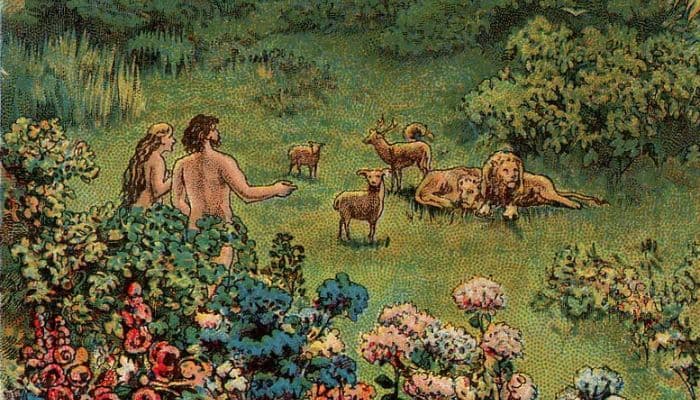Genesis (“Bereshit”) is the first book of the Torah, Judaism’s foundational text, and the only one consisting almost entirely of stories, with just three explicit laws. It tells of the origins of mankind and the Israelites, with stories on creation, Adam and Eve, Noah’s ark, the patriarchs and matriarchs – Abraham and Sarah, Isaac and Rebecca, Jacob, Leah and Rachel – and Joseph and his brothers. Its narratives depict figures as they encounter God, face wandering and exile, and grapple with conflict in family relationships.
In the parashah, God creates the heavens, the world, Adam and Eve, and Sabbath. A serpent convinces Eve, who then invites Adam, to eat the fruit of tree of the knowledge of good and evil, which God had forbidden to them. God curses them and expels them from the Garden of Eden. One of their sons, Cain, becomes the first murderer, killing his brother Abel out of jealousy. Adam and Eve have other children, whose descendants populate the Earth. Each generation becomes more and more degenerate until God, despairing, decides to destroy humanity. Only one person, Noah, finds God’s favor.
The parashah is made up of 7,235 Hebrew letters, 1,931 Hebrew words, 146 verses, and 241 lines in a Torah Scroll (Sefer Torah). Jews read it on the first Sabbath after Simchat Torah, generally in October, or rarely, in late September or early November. Jews also read the beginning part of the parashah, Genesis 1:1–2:3, as the second Torah reading for Simchat Torah, after reading the last parts of the Book of Deuteronomy, Parashah V’Zot HaBerachah, Deuteronomy 33:1–34:12.



















One Response